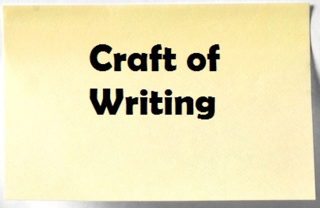Strengthen writing by replacing adverbs
Adverbs are words that typically describe a verb (though they also can describe adjectives and other adverbs, which can be a real symptom of a bloated passage). For example, in the sentence “He walked quickly across the deck”, “quickly” is an adverb because it describes or modifies “walked”, the verb.
words that typically describe a verb (though they also can describe adjectives and other adverbs, which can be a real symptom of a bloated passage). For example, in the sentence “He walked quickly across the deck”, “quickly” is an adverb because it describes or modifies “walked”, the verb.
The sentence could be tightened by dumping “quickly walked” and replacing it with a stronger verb. “Strode” – which indicates a brisk walk – might work better. The sentence then would read, “He strode across the deck.”
If you’ve got a lot of adverbs in a passage, you’re probably relying too much on adverbs to do the hard work in your sentence. Adverbs, however, aren’t the muscle that an exact verb provides. While you may need to use an adverb on occasion, our language generally is broad enough that you can find the right verb.
So trim the fat in your writing and build a buff sentence capable of delivering a right hook to your reader. Or as Strunk and White famously advised with another metaphor, remember that “an adverb is a leech sucking the strength from a verb.”
Need an editor? Having your book, business document or academic paper proofread or edited before submitting it can prove invaluable. In an economic climate where you face heavy competition, your writing needs a second eye to give you the edge. I can provide that second eye.
Related articles
 When to use affect vs. effect
When to use affect vs. effect



